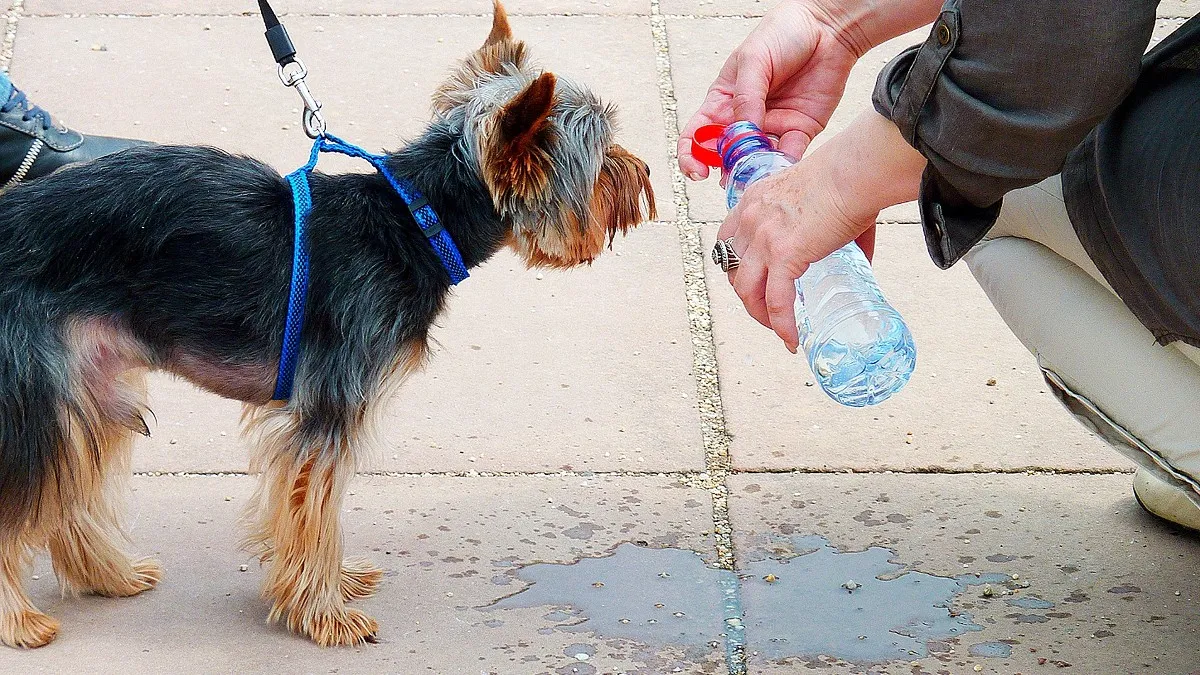
Breed poor indicator of dog behaviour, research reveals
Breed alone is a poor predictor of dog behaviour and should not be used to inform decisions relating to pet selection, a new study reveals.
The research from the University of Massachusetts Chan Medical School, published in the journal Science, sequenced the DNA of more than 2,100 dogs from 78 breeds and assessed about 200,000 survey answers from the owners of over 18,000 dogs.
The researchers found 11 regions in the dogs’ genome strongly associated with behaviour, though none of these were specific to breed.
Researchers said breed only explains 9% of the behavioural variation seen in the individual dogs, and for some behavioural traits. The scientists believe age or dog sex were the best predictors.
The study could not find behaviours that were exclusive to any one breed.
Elinor Karlsson, study senior author, said: “The majority of behaviours that we think of as characteristics of specific modern dog breeds have most likely come about from thousands of years of evolution from wolf to wild canine to domesticated dog, and finally to modern breeds.
“These heritable traits predate our concept of modern dog breeds by thousands of years.”







5 Comments
Mobile Phil
This is precisely the kind of rubbish academic behaviour research that produces misleading and inaccurate advice and leads to owners suffering behaviour problems. The people producing it are not experienced dog trainers, they are scientists. This is like a bunch of piano tuners doing a survey of clients about Beethoven’s symphonies. Ask ANY experienced, genuine dog trainer (not read-a-book / done-a-course teenager) and you will find them unanimously agreeing that breed is EXACTLY a predictor of the most likely behaviour problems.
Mobile Phil
This is precisely the kind of rubbish academic behaviour research that produces misleading and inaccurate advice and leads to owners suffering behaviour problems. The people producing it are not experienced dog trainers, they are scientists. This is like a bunch of piano tuners doing a survey of clients about Beethoven’s symphonies. Ask ANY experienced, genuine dog trainer (not read-a-book / done-a-course teenager) and you will find them unanimously agreeing that breed is EXACTLY a predictor of the most likely behaviour problems.
Mobile Phil
This is precisely the kind of rubbish academic behaviour research that produces misleading and inaccurate advice and leads to owners suffering behaviour problems. The people producing it are not experienced dog trainers, they are scientists. This is like a bunch of piano tuners doing a survey of clients about Beethoven’s symphonies. Ask ANY experienced, genuine dog trainer (not read-a-book / done-a-course teenager) and you will find them unanimously agreeing that breed is EXACTLY a predictor of the most likely behaviour problems.
Keith Rowley
Has any research been made as to the comparison between physical exercise and mental stimulation. I believe that five times as much energy is required when exercising the mind, compared with the body. I have no evidence as to this ratio, this estimate is obtained from a 1 1/2 – 2 hour session with a client’s dog. Breed and intelligence doesn’t seem to favour any particular dog. I’ve had a young ‘working’ breed go to sleep before the session is over. Nearly every dog will sleep after my visit for a couple of hours, usually longer. The longest ‘recovery’ time is 1 1/2 days !
The above observation is based on an average of 2/3 mental, 1/3 physical exercise of the lesson.
Keith Rowley
Has any research been made as to the comparison between physical exercise and mental stimulation. I believe that five times as much energy is required when exercising the mind, compared with the body. I have no evidence as to this ratio, this estimate is obtained from a 1 1/2 – 2 hour session with a client’s dog. Breed and intelligence doesn’t seem to favour any particular dog. I’ve had a young ‘working’ breed go to sleep before the session is over. Nearly every dog will sleep after my visit for a couple of hours, usually longer. The longest ‘recovery’ time is 1 1/2 days !
The above observation is based on an average of 2/3 mental, 1/3 physical exercise of the lesson.